Apply for this course
Please select when you would like to start:
If you're a UK applicant wanting to study full-time starting in September, you must apply via UCAS unless otherwise specified. If you're an international applicant wanting to study full-time, you can choose to apply via UCAS or directly to the University.
If you're applying for part-time study, you should apply directly to the University. If you require a Student visa, please be aware that you will not be able to study as a part-time student at undergraduate level.
If you're applying for a degree starting in January/February, you can apply directly to the University.
Apply to us for January 2025
If you're a UK student or an EU student with settled or pre-settled status applying for January 2025, you can simply call our hotline on 0800 032 4441 or complete our fast-track online application form.
Why study this course?
This degree will bring you closer to a professional managerial career in the largest global service sector. You’ll benefit from close links with government and businesses via membership of the Tourism Management Institute, as well as insights from international projects by research centres such as ATLAS. Studying with us you will investigate live issues such as how to develop local tourism marketing strategies, improve the quality of London’s key visitor attractions and help local people to benefit from tourism development.
Become a member of the TMI
Benefit from close links with government and businesses via membership of the Tourism Management Institute
Join a course that never stops developing
This course is constantly evolving to include the most up-to-date issues and to prepare entrepreneurs for the challenging tourism business environment, including how to strategically manage operations even in a situation of crisis
Join our famous overseas tour
Our overseas study tour is the highlight of the course, providing an early example of field research techniques and addressing tourism marketing, management, planning and sustainability issues
Course modules
The modules listed below are for the academic year 2024/25 and represent the course modules at this time. Modules and module details (including, but not limited to, location and time) are subject to change over time.
Year* 1 modules
Year 2 modules
Year 3 modules
Event Planning and Management
This module currently runs:autumn semester - Wednesday afternoon
(core, 15 credits)
Events Planning and Management will help students to develop their knowledge and understanding of the processes involved in event planning and management, through academic reading, case studies and practical experience. Where possible, the module will also offer students the opportunity to either work, plan, or run an actual event (e.g. student union activities, university student ambassador, music, business, arts, cultural, and so on).
Aims of the module:
1. To equip students with the knowledge and skills necessary to research, plan, design and implement a range of event types in diverse settings.
2. To develop student knowledge/ability to apply key events management (and marketing) principles and theories to real world professional industry contexts - through either-or, working, planning, running/organising a live event.
3. To provide students with the opportunity to gain both academic and hands-on experience in the research, planning/design and delivery of events.
4. To enable students to develop their knowledge and practice relevant com-petencies in a real-life events management environment.
Learning Through Organisations (Professional Practice 1) in Tourism
This module currently runs:spring semester - Tuesday morning
(core, 15 credits)
This Professional Practice module will enhance the students’ understanding of what it means to be a business professional within the Tourism and Travel Industry. This module will support the preparation for their future career by encouraging them to develop, put into practice and evidence the skills and behaviours that employers want to see.
The ‘Professional Practice’ approach ensures that as a developing professional the students understand how to learn effectively and efficiently either in the workplace or in a simulated context. They also learn how to use all the resources available to reflect on their progress. This module involves planning, conducting and reflecting on their own ‘performance episodes*’ and a more general reflection on their overall professional development to date. The written reports and reflections become part of their growth and productivity E-portfolio** which they will maintain throughout their programme.
In addition, they will have the opportunity to test, review and evidence their skills development via the on-line resources provided throughout the programme, which support the general skills required by employers. As such this module aims to,
1. Build understanding of the expected workplace knowledge, skills, competencies and attitudes so that they become intrinsic performance and growth motivators.
2. Ensure the adoption of skills, attitudes and behaviours that improve self-awareness to aid reflective practice.
*A performance episode is defined as an initiative that the students take, made up of tasks, which develops their skills, and which involves both selecting knowledge from the programme and interacting with others. It must be measurable so that they are able to reflect on their professional skills development.
** The growth and productivity E-portfolio is a digital internet-based tool within which they can store all evidence of their, weekly via learning log feedback from stakeholders, their reflections and their Individual Development Plan (IDP). It allows them to share their journey with others and to organise elements of it to help them progress further.
Read full detailsLondon's Visitor Economy
This module currently runs:autumn semester - Wednesday morning
(core, 15 credits)
London’s Visitor Economy aims to showcase the extent of visitor economy in London and encourage tourism and events students to examine its potential with regards to their studies, professional development and employability. The module will explore different dimensions of global city’s visitor economy, both in class and in the field.
With over 19 million international tourists per year, some 12 million domestic tourists in addition to over 200m day visitors, London is one of the major city destinations globally. However this poses problems for tourism managers in terms of spreading visitors temporally and geographically within the capital, catering for very diverse visitor groups and maintaining its competitive position vis a vis rivals for leisure, events and business tourists in an uncertain international environment.
The module aims are as follows:
• To develop a practical knowledge of London’s evolving visitor offer for leisure, business and events tourists.
• To facilitate students ability to identify the needs and preferences of London’s diverse visitor groups
• To enable students to identify specific visitor experiences to suit specific tourist audiences
• To gain insight into the challenges faced by visitor managers in providing strategies, services, experiences and events for diverse visitor groups
• To become familiar with the market intelligence, tourism and events reports and strategies produced by London’s Destination Marketing Organisation to guide London’s Visitor economy.
Managing People in Organisations
This module currently runs:spring semester - Monday morning
spring semester - Monday afternoon
spring semester - Tuesday morning
spring semester - Tuesday afternoon
spring semester - Wednesday morning
spring semester - Wednesday afternoon
spring semester - Thursday morning
spring semester - Thursday afternoon
spring semester - Friday morning
spring semester - Friday afternoon
(core, 15 credits)
This module provides an introduction to the management of people in organisations, or as it is commonly known ‘Human Resource Management’. It is aimed at students from a variety of disciplines, and not just those looking to pursue a career in HRM. Ultimately, the management of people is often the responsibility of line managers and supervisors so it is important that all graduates of Guildhall School of Business and Law are equipped with the knowledge and skills to implement this effectively in practice. This module will take a critical perspective, illuminating to students not only the ways ‘good’ people management can contribute to performance and employee well-being but also the potential problems implementing this in practice.
Read full detailsMedia Culture and Society
This module currently runs:autumn semester - Monday afternoon
autumn semester - Wednesday afternoon
autumn semester - Friday morning
(core, 15 credits)
In an age of mass communication we are constantly bombarded by messages through advertising, content marketing, editorial, programming and other forms via the press, television, radio, film, music and the internet.
As such, the media is a powerful dynamic force and cuts through gender, class, race, creed, and nationality to form bonds between groups of people who may exist in totally different circles, potentially bringing us closer to a global culture. Social & cultural values are largely shaped and reflected by the consumption of media and this module seeks to provide students with an insight into the media industry and also act as introduction to models and tools designed to enable them to engage in a more deeply informed debate on this constantly changing subject.
The module aims to introduce students to the nature and make-up of the media industry and undertakes a critical examination of the role of culture and society in determining its development. It will examine both traditional and new media/digital platforms as part of a wider analysis of its influence on culture & society. Additionally the module aims to provide an introduction to the learning strategies that students will need to successfully study in higher education.
The module also aims to assist students in the acquisition and development of the following skills:
1. Academic Reading
2. Research
3. Application of Knowledge and Presenting Data
4. Communicating/presenting – orally & collaborating / working with others
5. Critical Thinking and academic Writing
6. Self- assessment/reflection
Principles of Marketing: for Creative Industries and Aviation
This module currently runs:spring semester - Tuesday morning
spring semester - Tuesday afternoon
(core, 15 credits)
The module aims to provide an understanding of the marketing process in contemporary organisations and in the context of tangible goods and services. The service sector accounts for a significant proportion of GDP and employment in most developed economies and therefore it becomes essential for students to gain insight within the area. In this module, students are introduced to a range of marketing theories such as the marketing concept, consumer behaviour, business environmental analysis, marketing research, consumer insights applicable to tangible goods and services marketing.
The module aims to:
● Provide an understanding of the theoretical foundations and practical application of marketing
● Provide an appreciation of contemporary issues in marketing.
● Develop students’ academic writing, application of knowledge and data interpreting skills.
Develop students’ researching and analysing skills.
Understanding and Managing Data
This module currently runs:autumn semester - Monday morning
autumn semester - Monday afternoon
autumn semester - Tuesday morning
autumn semester - Tuesday afternoon
autumn semester - Wednesday morning
autumn semester - Wednesday afternoon
autumn semester - Thursday morning
autumn semester - Thursday afternoon
autumn semester - Friday morning
autumn semester - Friday afternoon
(core, 15 credits)
Data analysis is a top business priority. It drives the opportunity for performance improvement and, with advances in technology and software, data are generated at an ever increasing rate. As such, it is not surprising business data analysis and software skills are among the top graduate skills sought by employers today. Understanding and Managing Data, responds to these market demands by providing the underpinning skills required to make effective use of quantitative and statistical analyses and develops students’ interpretation and reporting skills.
The module introduces data-based decision making and performance measurement and provides students with the practical experience of using Excel to transform data into meaningful information. It further introduces students to forecasting, target setting and project management. As such, it provides students with an understanding of the fundamentals of statistical methods for business decision making. In doing so, it provides the skills and knowledge required for levels 5 and 6 modules, including the dissertation and consultancy project, that develop and evaluate the quantitative aspects of business management.
Overall, this module develops the analytical and communication skills relevant to understanding business information, with an emphasis on problem-solving techniques in the context of business management, decision making and performance measurement.
Understanding the Business and Economic Environment: The Tourism Industry
This module currently runs:spring semester - Monday morning
(core, 15 credits)
The focus of this module is to equip students to understand organisations in contexts past, present and future, and enable them to analyse the macro, micro, internal and external business and economic environments in which they operate. An understanding of the environments will facilitate the interpretation of situations and enable decisions that add value for businesses. The focus of the module is on the external and internal influences on organizations and the effect these have on business practices.
The module is designed to be used by Level 4 undergraduate students on a range of programmes. Examples, illustrations and case studies will be drawn from chosen industry sectors such as advertising, aviation, events, finance, marketing, music, transport, tourism, and applied to reinforce basic concepts. This will enhance the ability of students to understand particular business problems and aspects of the business and economic environment. Topics and case studies will cover business issues that are contemporary and relevant to the real world.
Cities, Tourism and Eventfulness
This module currently runs:autumn semester - Tuesday morning
(core, 15 credits)
Cities, Tourism and Eventfulness is designed to equip students with an understanding of the significance of events for the management of cities, and of cities for the management of events. The rise of the ‘eventful’ city in recent years demonstrates how cities have been using events strategically to tackle a range of post-industrial urban challenges – to boost the urban economy, as part of their regeneration strategies, to attract visitors and tourists, to rebrand the city, and to make it an attractive proposition for investment. In the words of many boosterist slogans ‘a place to live, work, study and visit’. The events in question can be cultural events or business events. They can be recurring events such as annual festivals, or one-off events that require competitive bidding (such as an Olympics or European Capital of Culture) and which may involve considerable investment in infrastructure. Such event-led regeneration and the associated legacy-planning is typical of mega-events. But this approach has spread to the local level as the case of the London Borough of Culture programme where London Boroughs compete for GLA funding to stage a year-long festival. To be successful in this, cities need to nurture their creative sectors and work in partnership with events organisations and cultural organisations.
Cities Tourism and eventfulness explores the conceptual basis for eventfulness, the ‘festivalisation’ of cities at different temporal and spatial scales and the implications of events and tourism for urban development, revitalization and sense of place, with particular reference to urban spaces and ‘quarters’ that are developed as a focus for events and tourism.
This module is a core for BA Tourism and Travel Management and BA Events Management, students and an option for BA Events and Marketing students. As such it provides an understanding of the key role that events and events tourism play in the cultural and creative industries of cities and how they are used in eventful strategies to address key urban challenges which can be economic, social, cultural, planning or environmental. The result is an array of events that are used to regenerate cities, animate public spaces and enrich the lives of residents and visitors.
This module aims to:
- Equip students with an understanding of the current debates and explanations of the reasons why cities aspire to become eventful.
- Increase awareness of the ways in which cultural events and cultural organisations can be used instrumentally to address urban problems
- Examine critically the notions of urban entrepreneurialism, creativity, festivalisation, place-making, event-led regeneration and legacy,
- Increase awareness of the positive and negative impacts of using events, creativity and tourism in the revitalization of urban spaces and ‘quarters’
- Develop skills of research and analysis in developing an original case study of an eventful city.
Cultural Tourism Management
This module currently runs:spring semester - Tuesday morning
(core, 15 credits)
International tourist arrivals reached 1.5bn in 2019 and the proportion of these said to be cultural tourists is 40% and rising. Many more are incidental cultural tourists, engaging with culture on a more casual level. Most governments have specific cultural tourism strategies and are looking to develop their cultural tourism offer and find new ways of communicating that to potential visitors. Cultural Tourism Management explores the growth and increasing diversity of this cultural tourism market, and the governance of cultural tourism at different spatial levels from the global to the local. It examines critical issues related to the cultural tourism product including tangible and intangible cultural heritage, contemporary culture, contested meanings, authenticity, identity and the commodification of culture. It identifies the current trends in creative and experiential tourism and how this impacts communities. It considers the ways in which many cities have reinvented themselves as centres of leisure and recreation consumption using cultural infrastructure investment, heritage commodification, events and festivals to boost cultural and creative industry investment and the potential for cultural tourism.
This module is a core for BA Tourism and Travel Management students and an option for BA Events Management, and BA Events and Marketing students. As such it provides an understanding of the key role that tourism plays in the cultural and creative industries, how culture is turned into tourism products and how destinations attempt to package those products for the growing cultural tourism market.
This module aims to:
- Equip students with a basic understanding of the interplay of culture and tourism, the motivations of cultural tourists and trends in their patterns of consumption and the cultural tourism product
- Demonstrate how the arts, museums, galleries, heritage sector, contemporary and local cultures are mobilised for the leisure economy and international tourism
- Increase awareness of the sensitive issues surrounding the commodification of culture
- Provide an understanding of the practical problems of ‘managing’ cultural tourism in dynamic urban and semi-urban contexts
- Develop skills in practical research, observation, creative thinking, fieldwork. recording and communicating findings
Managing visitors in the era of over-tourism
This module currently runs:autumn semester - Tuesday afternoon
(core, 15 credits)
‘Managing Visitors in the Era of Overtourism’ investigates one of the most contemporary concerns of the tourism industry in destinations where carrying capacity has been compromised. The module analyses practices and strategies that enable the management of visitors in sustainable manner, combining exceptional service with protection of resources.
The aim of the module is to provide students with practical skill of assessing visitor management practices based on the in-depth understanding of the importance of sustainable management in the era of overtourism.
Read full detailsSustainability, Business and Responsibility
This module currently runs:spring semester - Wednesday morning
spring semester - Wednesday afternoon
(core, 15 credits)
This module will address the critical issue of how current thinking on climate change and sustainability will impact on businesses and organisation. The need to create more sustainable organisations and businesses is fundamental to current and future organisational development strategies. It is necessary for students to understand the growing influence of the sustainability agenda on industry. This influence takes on many forms, from government policies and international agreements to the measuring the impacts of organisational practices on the ecology and communities. In the future, organisations, businesses, communities and individuals will be expected to understand and take responsibility for their economic, environmental and social impacts. This module will examine the current and future challenges. It will equip students to deal with the challenge of creating sustainable forms of business that operate within ecological and socio-economic limits.
It will explore the sustainability context, and how business practices will need to evolve to reflect the realities of operating within a globalised trading system that is striving to apply sustainability principles.
The overarching aim of the module is to ensure that students develop a full understanding of what is meant by sustainability, who decides what constitutes sustainability principles and how these principles are applied. It will explore the varied tools and techniques used to apply sustainability principles, by governments, business and communities, and the challenges and conflicts these present. Such appreciation will be developed progressively via more specific aims which are:
- To engage with the growing international debate and practice around sustainability, business and corporate social responsibility (CSR).
- To evaluate how this will challenge organisations and business.
- To examine tools and techniques for evaluating and implementing of sustainability
- To analyse the evolving policy frameworks within which business operates.
- To understand how changing environmental realities may affect business practice.
The module also aims to assist students in the acquisition of the following skills:
1. Academic reading
2. Researching
3. Problem-solving and decision making
4. Critical thinking and writing
5. Application of knowledge and presenting data
6. Academic writing
Creating a Winning Business 1
This module currently runs:autumn semester - Wednesday morning
autumn semester - Wednesday afternoon
autumn semester - Thursday morning
autumn semester - Thursday afternoon
autumn semester - Friday morning
autumn semester - Friday afternoon
spring semester - Wednesday afternoon
(alternative core, 15 credits)
The University has a policy that undergraduate students must, take a Work Based Learning (WBL) module i.e. a module which requires them to directly experience and operate in the real world of work and to reflect on that episode in order to identify skill and knowledge areas that they need to develop for their career.
This module challenges students to be creative in identifying a new business opportunity and in examining the viability of all aspects of the idea in the real-world context e.g.
- Supporting an existing small business to understand how a business runs
- Respond to small business’s client briefs
- Testing potential customers’ views.
As a result of client brief and feedback, business concepts and/or ideas will develop over the duration of the module.
The QAA Benchmark on Business and Management (2019) emphasises the attribute of “entrepreneurship” and of “the value of real-world learning”. In terms of promoting work related skills, the module specifically focuses on practical techniques for responding to client briefs in evaluating and developing business ideas and so develops creative yet practical thinking.
In addition, it requires students to examine market potential and prepare a presentation of their findings assuming the role of a business consultant. The module requires a high level of self-reliance to explore the business idea based on a client brief. Students develop an understanding of the role of business start-ups, business growth and development.
These skills and techniques are of practical relevance to anyone considering developing a business, working for a Small or Medium sized Enterprise (SME) or taking on an intrapreneurial role within a larger organisation where the business environment is constantly evolving and producing new challenges and opportunities.
Read full detailsLearning through Work
This module currently runs:autumn semester - Wednesday morning
autumn semester - Wednesday afternoon
autumn semester - Thursday morning
autumn semester - Thursday afternoon
autumn semester - Friday morning
autumn semester - Friday afternoon
spring semester - Wednesday morning
spring semester - Wednesday afternoon
(alternative core, 15 credits)
This Work Based Learning module enables students to undertake a short period of professional activity either: part-time/vacation employment; work placement; not-for-profit sector volunteering or a professional/employer led project.
Work Based Learning modules are designed to enhance students’ personal and professional development and assist in preparing students for their future careers. The module aims to facilitate application and progression of knowledge and skills gained via the learner’s studies and wider life experience. Students will be introduced to a range of professional skills and techniques, including: reflective self-assessment; preparation for employment; being a critical employee and developing approaches for co-operative and collaborative working.
• Students will be contacted prior to the semester to provide support in securing work based activity in good time.
• It is a student's responsibility to apply for opportunities and to engage with the Work Based Learning team to assist them.
• The suitability of any opportunities will be assessed by the Module Team and all roles must meet the Health and Safety requirements for Higher Education Work Placements.
• Learners may be able to utilise existing employment, providing they can demonstrate it is personally developmental and involves a relevant level of responsibility.
• In addition, students may be able to complete the Work Based Learning hours during the summer prior to the academic year a student is taking the module.
• Tier 4 International students will be required to submit weekly timesheets for the hours undertaken for the work based learning activity to meet the requirements of their visa. These will need to be signed by their line manager/supervisor.
The module aims to enable students to:
• Effectively express and understand their current skills and abilities in relation to their career values and goals.
• Practically apply the knowledge gained through their course programme to a work environment.
• Gain an in-depth insight of a work environment
• Make a positive contribution to the employing organisation and demonstrate inclusive workplace practice.
• Recognise their personal and professional development learning and apply to their future goals.
Problem Solving: Methods and Analysis
This module currently runs:spring semester - Friday morning
spring semester - Thursday afternoon
spring semester - Thursday morning
spring semester - Friday afternoon
(alternative core, 15 credits)
This module aims to develop students’ ability to understand and apply problem solving methods and analysis in relation to issues that may arise in business and management subject areas.
The module offers an opportunity for students to collect, present, analyse and interpret qualitative and quantitative data from a variety of data sources such as ONS and other sources. It seeks to enhance students’ knowledge and understanding of the business environment and develop their data management and data analysis skills using IT packages as appropriate.
The module provides the quantitative and qualitative data analysis skills that underpin the success of an empirical research project. This module helps to build the sound foundation required to undertake a final year project / dissertation module.
Read full detailsThe Practice of Consultancy
This module currently runs:autumn semester - Monday morning
autumn semester - Monday afternoon
autumn semester - Tuesday morning
autumn semester - Tuesday afternoon
autumn semester - Wednesday morning
autumn semester - Wednesday afternoon
autumn semester - Thursday morning
autumn semester - Thursday afternoon
autumn semester - Friday morning
autumn semester - Friday afternoon
(alternative core, 15 credits)
Consultancy is big business and the sector continues to experience strong growth. The UK consultancy industry alone employs more than 80,000 professionals and is worth an estimated £12 billion per annum; making it the second largest consultancy base in the world.
Management consulting involves engaging with stakeholders to provide objective, specialist advice. It is concerned with diagnosing issues and inefficiencies, solving problems, improving performance and implementing solutions to deliver complex change, maximise growth and to create value for organisations.
The Practice of Consultancy develops the practical research and consultancy skills required for a career in Business Analyses and Management Consultancy and prepares students for the final year Consultancy Project. Specifically, the module introduces research methods for consultancy and aims to develop a practical understanding of the tools and techniques of problem analysis and issue clarification. A range of business frameworks are applied to structure diagnostic analyses and thinking, whilst data, metrics and analytics are evaluated to inform the process and to provide the client with evidence-based solutions. Finally, this module aims to develop students’ communication skills through the preparation of a report to present the outcome of the consultation to their client.
Management consulting covers a broad range of activities and, to be effective, a consultant needs to be client-oriented and solution-focused. Expertise, resourcefulness, an analytical mind, creative thinking, an ability to manage relationships, empathy and excellent communication skills are essential to building trust and ensuring recommendations are implemented. By taking an applied, problem-solving approach, this module encourages students to enhance their competencies in these areas.
Transferable skills
Student will develop a range of key skills and knowledge, including:
- Critical evaluation, problem identification and problem-solving skills
- Research skills (quantitative and qualitative research)
- Numeracy
- Analytic, divergent and creative thinking
- Communication (critical reading, interviewing, listening, negotiating, advising, presenting and report writing skills)
Business to Business Marketing and Sales
This module currently runs:spring semester - Friday morning
(option, 15 credits)
This module looks at marketing challenges and specifically those facing businesses that serve the needs of organisations rather than households. ‘ Business to Business Marketing’ is a substantial, exciting and lucrative area. This module is used as a platform to help students understand the complexities of the business to business marketplace, Supply Chain Management, B2B Sales Management, Key Account Management, and other business marketing related fields of interest.
‘Business Marketing’ is a managerial process that facilitates the exchange of goods and services between organisations. The aim is to focus on key aspects such as manufacture, process, creating client value, negotiation, exchange and/or the supply of parts or finished products so that these are passed on to the next stage in the supply chain. This module looks at how each stage adds value, how vertical collaborations help create value, and how relationships can create and maintain market advantages. Business to business trade is a complex, risky and uncertain process. It requires strong business relations and links, good negotiating skills, some degree of bargaining power but most importantly a detailed knowledge of marketing.
‘Business Marketing’ offers a comprehensive introduction to the main theoretical and practical concepts of Business to Business Marketing including Sales organisation and management. The module looks at the connection between the different stages along the supply chain and how products are traded and handled between businesses before they reach the end consumer. ‘Business Marketing’ aims to also cover the complexities of buying and selling, and how marketing plays a vital role in creating and maintaining long lasting businesses relationships. The module additionally provides a rationale for allowing third parties to gain control of one’s vital marketing operations and functions.
Module aims to:
• explore the important and complex business processes many firms require to go through when firm to firm trade is initiated and developed, and look at the significance of Sales and Key Account Management to capitalise on marketing opportunities.
• examine supply chains and explain why products need to pass through a number of manufacturing stages and through different distribution channels before reaching end consumers.
• enhance students’ commercial awareness, research, and academic reading and presentation skills and prepare students to become more business oriented by applying theory in a relevant manner to find solutions to authentic business marketing problems and challenges.
• evaluate the importance of ethics, social responsibility, social justice, inclusion and sustainability and how these may lead to competitive advantages and better business prospects.
Read full detailsConsumer PR and Media Relations
This module currently runs:autumn semester - Tuesday morning
(option, 15 credits)
This module focuses on the role of public relations (PR) in the commercial activities of consumer facing organisations. It addresses the importance of winning (and maintaining) customers, and with meeting competitive challenges in consumer marketing scenarios. The module discusses how PR and media relations interfaces with consumer marketing, together with the way in which organisations use PR tools to interact with consumers in a trading environment. Delivery consists of 3-hour CCT using a combination of workshops, lectures (including guest speakers) and pre-assessment seminars. Assessments include a group presentation of a Consumer PR campaign plan (100%)
This module will also explore PR-related aspects of the media environment and is designed to provide students with the understanding and skills required to exploit digital and non-digital media within the context of designing and delivering consumer-facing public relations campaigns.
The module also calls on students to deploy traditional and digital communications skills as part of a personal strategy to enhance their own employability.
The module also aims to assist students in the acquisition of the following skills:
• Research
• Communications/presenting – orally and in writing, including inter-cultural communication
• Creativity
• Academic writing/literacy
• Digital literacy and IT skills
• Career Management
Developing Inclusive Organisations
This module currently runs:autumn semester - Monday morning
autumn semester - Tuesday afternoon
autumn semester - Tuesday morning
autumn semester - Monday afternoon
(option, 15 credits)
We live in a more diverse society than ever before. Structural changes in labour markets have led to increasing numbers of women, older workers and disabled people in employment, with fewer younger people in many industrialised economies. Globalisation and migration has also lead to greater ethnic diversity. We are also clear about the business for diverse workforces, and the benefits this can bring to society.
However, there is a question as to whether a diverse workforce always equals inclusion. There is evidence that many of these groups are marginalised and face employment disadvantages in practice. The aim of this module is to illuminate some of the inequalities experienced by these groups, and then to examine theoretical perspectives helping explain these and provide insights into how these can be better remedied in practice.
Whilst arguably the principles of inclusion transcend the protected characteristics (Equality Act, 2010), it is clear that these groups tend to suffer more inequalities in the workplace than others (despite law that protects against this). This module will therefore look at the meaning of inclusion and how it differs from concepts of equality and diversity – what it adds and where it might be lacking. We will examine closely the different dimensions of diversity (gender, age, race/ethnicity and so forth) in order to understand the specific barriers these groups experience, and what methods organisations can develop to ensure more inclusive workplaces – so that everyone feels valued regardless of identity or background.
A broader aim of the module is to provide students with an opportunity to ‘step into the shoes’ of diverse marginalised groups and the specific barriers they face, so they are better prepared to identify and promote inclusive workplaces, as social justice champions of our future. This is something our society needs and London Metropolitan University is passionate about developing – values driven graduates who make a positive contribution to the world (see Strategic Plan).
Read full detailsDigital Marketing
This module currently runs:spring semester - Monday morning
spring semester - Thursday afternoon
(option, 15 credits)
8 Module description
In the current business environment, it is imperative that marketers keep pace with the dramatic and far-reaching changes fuelling digital transformation. This module is about appreciating the importance of the ever-evolving, dynamic digital marketing landscape. Within the digital marketing landscape you will be introduced to the digital marketing channels and their applications. You will be presented with theoretical frameworks and models, which are relevant to the analysis of the digital marketing practice. You will examine the development of supporting technologies for digital marketing and examines digital channels and their suitability for inclusion for effective integrated online and off line marketing programmes and campaigns. Search Engine Optimization (SEO), customer acquisition and retention, mobile marketing, email marketing, online PR, affiliate marketing, social media, video and multichannel marketing are all explored in detail. Additionally the importance of effective digital monitoring and measurement techniques that enable organisations to improve digital marketing effectiveness performance and planning will be explored Related legislation, regulation and codes of practice will also be examined
The module aims to –
• Develop students' understanding and knowledge of the issues in digital marketing.
• Provide students an understanding of the nature of digital marketing concepts and techniques, and the role of digital marketing in improving an organizations marketing effectiveness and planning.
The module builds on the acquisition of the following Skills
• Analysing data & problem solving
• Application of Knowledge and presenting Data
• Digital literacy and IT skills
Field Trip
This module currently runs:spring semester - Friday morning
(option, 15 credits)
This module aims to enables students to complete a research-based project that deals with and / or provides a solution to a practical business problem. The student’s topic is linked with the destination of the field trip (for example Toulouse, with a focus on Airbus) and has to be appropriate to their undergraduate degree. Students are required to map out the applied problem, develop appropriate research questions, identify and use theoretical concepts/prior literature, and use robust and appropriate methods and data analyses in an independent, ethical and disciplined manner. Students will have the opportunity to talk, observe and develop networks with experienced leaders in the organisation where the problem is focused. The field trip is time constrained replicating the realities of the business world. The students are expected to develop an in-depth understanding of their chosen problem, research methods/approaches and the ability to appropriately seek out data required for providing a practical solution. The module aims to stimulate development of students’ ability to relate theoretical material taught in the class to real world practice. It constitutes a useful and appropriate preparation for the final year dissertation or consultancy project.
The module is subject to minimum number of students participating and circumstances allowing travel.
Fundamentals of Project Management
This module currently runs:spring semester - Monday morning
spring semester - Monday afternoon
spring semester - Wednesday morning
spring semester - Wednesday afternoon
spring semester - Thursday morning
spring semester - Thursday afternoon
spring semester - Friday morning
spring semester - Friday afternoon
(option, 15 credits)
Projects come in many shapes and forms, from small to large, familiar to unfamiliar, simple to complex, urgent to non-urgent and widely supported to strongly resisted. Anyone undertaking the sponsorship, governance or management of a project needs to recognise that there are risks to its completion on time, to budget and to the customer’s satisfaction. They should therefore know that it may be unsuccessful in some way, or even fail completely.
It is easy to find examples of such failures; the current Crossrail project, the delayed opening of the Berlin International Airport, the chaos when Heathrow Terminal 5 opened, the government’s failure to meet its targets for Corona Virus testing, and the countless software development projects that have been late, failed to meet user needs or been riddled with bugs.
There are various bodies of knowledge specific to managing Programmes, Projects and Portfolios of Projects that seek to provide the methods and tools to manage projects successfully. These are necessary but not sufficient; they do however go a long way towards improving project success rates. Organisations like the Association for Project Management and the Project Management Institute continue to work to improve the status and competency of project managers, as well as the competency of organisations.
This module introduces students to the role of the project manager, the nature of projects and how to manage them successfully, focusing on the linear project in which the project output is clearly defined at the commencement of the project. Such projects are typical in the construction industry but can be found widely in business organisations. You will also look at the way Agile projects change the approach to project delivery to deal with uncertainty in the product to be delivered and to accept changes in requirements or circumstances.
The module aims to enable students to:
- assess projects to determine the approach most likely to succeed
- contribute to the design and development of effective project organisations that provide governance, assurance, support and direction to the project team
- plan and manage simple projects using both linear and agile methods
- prepare key project documents
- create project plans using project management software including the use of Gantt charts
- communicate project management plans, risks and issues effectively.
Professional Experience Year Placement
This module currently runs:all year (September start)
(option, 30 credits)
The Professional Experience Year Placement is a Work Based Learning module designed to intensively develop student employability and increase career prospects upon graduation. The placement year requires learners to undertake a minimum of 44 weeks full-time employment relating to their studies and career goals. This comprehensive experience will facilitate application and progression of knowledge and skills gained via the degree programme any previous employment and wider life experience.
This ‘Year in Industry’ work based learning module is undertaken as an additional 30 credits between Levels 5 and 6, extending undergraduate course programmes to four years. The module provides an additional 30 credits to a degree programme, commencing in the summer following completion of Level 5. Students will retain student status during the year and complete their final, fourth year of study following the placement year.
Pre-placement preparation support over six months prior, will guide and assist students in their search for an appropriate placement role. Careers Consultants will provide guidance prior to the module to assist decision making in considering placement options and post placement, for career planning post-graduation. Students will only register on the module once they have secured a placement.
During the placement year, students will be supported remotely by Placement Tutors who will provide guidance on application of theoretical knowledge in a practical context, analysis of business problems and proposing solutions; identifying and articulating transferable skills and knowledge developed to meet the assessment requirements. Students will be expected to demonstrate improved understanding of their abilities and career goals, knowledge of the workplace organisation, co-operative and collaborative working and professional awareness through reflective learning.
It is a student's responsibility to apply for opportunities and to engage with the Work Based Learning team to assist them. The suitability of any opportunities will be assessed by the Module Team and all roles must meet the Health and Safety requirements for Higher Education Work Placements. Tier 4 International students will be required to submit weekly timesheets for the hours undertaken for the work based learning activity to meet their visa requirements. These will need to be signed by their line manager/supervisor.
The module aims to enable students to:
- Effectively express and understand their current skills and abilities in relation to their career values and goals.
- Practically apply the knowledge gained through their course programme to a related work environment.
- Gaining comprehensive insight into a work environment.
- Make a positive contribution to the employing organisation and demonstrate inclusive workplace practices.
- Recognise their personal and professional development gains and apply to their future goals.
Social Media Strategies
This module currently runs:autumn semester - Thursday morning
(option, 15 credits)
There has never been a more exciting time to study social media strategies. Social media strategies now play out in every aspect of business, government and society today. This module offers a critical eye on social media strategies, identifying those that worked as intended and those that didn’t. Through looking at current examples of social media and social media strategies, you will learn what a strategy is and how best to deploy it for the particular agenda and goals of an organisation. Teaching methods include formal lectures, seminar discussion, student-presentations and online material. Students will be expected to attend formal lecturers and take notes, read from primary and secondary source material and comment on their readings. They are expected to creatively engage with social media content creation as it embeds within an overall strategy of a particular industry. This module aims to:
● Enable students to evaluate key approaches to understanding current social media and strategy.
● Encourage students to develop critical awareness of their everyday experience of social media.
● Establish links between theoretical, technological, social and ethical aspects of social media.
The Event Experience
This module currently runs:autumn semester - Wednesday morning
(option, 15 credits)
This module seeks to equip students with theoretical knowledge and practical skills necessary to evaluate events in the exhibitions and corporate sector as well as in other business, leisure, cultural and tourism settings.
It introduces experiential marketing and consumer behaviour theory in the context of event management and provides and students with the opportunity to apply their knowledge in a real-world events context by conducting a small-scale consultancy/research project on a ‘live case study’ aimed at evaluating an event.
The overall aims of the module are:
- To equip students with the knowledge and skills necessary to evaluate a wide range of event types
- To enable students to apply a range of research and consultancy skills within the event industry context
- To develop student ability to apply experiential marketing and other relevant theories and academic learning in real world contexts
- To encourage student confidence in the use of appropriate research, analytical, discursive skills in business contexts.
Leading Innovation
This module currently runs:autumn semester - Tuesday morning
autumn semester - Wednesday morning
autumn semester - Tuesday morning
(core, 15 credits)
This final-year core module “Leading Innovation” aims to enable students to study and apply in practice:
a range of leadership theories and techniques to critically evaluate and develop their own personal leadership style
a range of leadership theories and techniques to critically evaluate contemporary innovation practice, and organisations in a range of industries engaged with innovation practice
a range of innovation theories and techniques to critically evaluate contemporary innovation processes, and organisations in a range of industries that innovate
the synergies between leadership and innovation in a range of contexts
The Module will be based around two themes:
(i) Theme 1: Leadership, where they will study, reflect on, and use leadership theories and techniques to assess and develop their own personal leadership style. By doing this, students will be closely engaging with and evaluating classic and contemporary theories, and directly applying the ideas from these theories to their own experience and ambitions.
(ii) Theme 2: Innovation, where they will study, analyse, and evaluate the innovation processes of selected organisations and industries (by critiquing, for example, Case Studies), and how innovation is achieved and operates within the contemporary economy (by critiquing, for example, classic and contemporary examples). In addition, students will study the synergies between leadership and innovation, an emerging area in academic research and in practice. By doing this, students will be closely engaging with and evaluating innovation practice and performance, informed by the leadership theories and techniques covered in Theme 1.
Each theme will conclude with an assignment: Theme 1 will conclude with a team-based formative assignment, and Theme 2 will conclude with a pairs-based summative assignment. Once complete, this Module aims to enable students to understand a long-term timeline. Firstly, students will ‘look back’ and be exposed to classic and contemporary leadership texts, so they can critically evaluate and develop their own personal leadership style. Secondly, they will ‘look forward’ and critically evaluate how innovation can further emerge in the economy and society, and how contemporary and future organisations and industries can ensure sustainability through enhanced innovation, blended with enhanced organisational leadership.
Read full detailsService Excellence for Creative industries
This module currently runs:spring semester - Tuesday morning
(core, 15 credits)
‘Service Excellence for Creative Industries and Aviation’ investigates practices and strategies used in managing exceptional relationships between customers and service providers. Consistent delivery of high-quality service increases customer loyalty, businesses reputation and competitive advantage, hence the module focus lies in the exploration of all aspects of excellent service delivery.
The aim of the module is to provide students with understanding of the importance of service excellence, including reflection on their own professional conduct practices, and equip them with analytical ability to assess and improve service delivery.
Read full detailsStrategy in Tourism and Travel
This module currently runs:autumn semester - Friday morning
(core, 15 credits)
This module critically analyses the theories and models that guide the development of business strategy for the travel sector with reference to current issues and case studies. Students will apply principles to practice through ‘live’ examples, for example strategies of start-up airlines entering scheduled routes.
The aim of the module is to apply theories and models of sustainable competitive advantage to the travel sector with particular reference to liberalization of travel markets, and continuing barriers to market entry. It also aims to examine the significance of organizational structure and people management for business strategy in the travel sector.
Read full detailsTourism Destination Management
This module currently runs:spring semester - Monday afternoon
(core, 15 credits)
‘Tourism Destination Management’ guides students through principles of tourism destinations management, opening prospective career pathway into planning and developing tourism destination’s portfolio. Realistic understanding of obstacles facing destinations that seek to establish or improve destination product and image will be explored critically with reference to current issues and case studies from range of destination types: urban and rural, led by events, culture, business or niche tourism products. During the course of the module, students apply principles to practice through ‘live’ examples, advising a particular British destination on improving its competitive advantage.
As core module for Tourism and Events pathway, it aims to utilise links with Tourism Management Institute and develop graduates able to meet industry needs and pursue career in this, mostly public, sector of tourism industry.
Read full detailsConsultancy Project
This module currently runs:all year (September start) - Monday morning
all year (September start) - Monday afternoon
all year (September start) - Wednesday morning
all year (September start) - Tuesday morning
all year (September start) - Tuesday afternoon
(alternative core, 30 credits)
The Professional Consultancy / Project is a capstone module in which students will be required to undertake a business project aimed at enhancing their employability as well as providing a platform for further professional development.
This module requires students to undertake and write up an individual project that gives them the opportunity to not only consolidate their learning on the programme, but also to clearly apply their learning in a real-world context. Furthermore, it will provide students with the opportunity to showcase their professional competences built throughout the programme.
If in employment students may choose to use a work-based consultancy project (subject to agreement from their employer). Alternatively, they may choose a project which is research-based.
Students will also be required to present their project via an on-line presentation or podcast. This module gives them the opportunity to demonstrate their professional credibility and to use their academic, business and technical skills in a professional context.
Professional Consultancy Project aims to:
1 Demonstrate the ability to utilise and contextualise knowledge by applying analytical skills to a business situation or problem
2 Demonstrate the ability to assemble a coherent and a sustained piece of writing that evaluates a business/project problem/solution
3 Create an opportunity to further develop a range of skills associated with research including analysis, interpretation, written expression, formal report writing, and self-managed study
4 Engage students on a complex, integrated activity that will consolidate and integrate previous skills and learning
5 Provide students with a ‘showcase’ opportunity that allows them to demonstrate their ability to apply the knowledge and skills acquired throughout the course to a significant and specialised task
Dissertation
This module currently runs:all year (September start) - Tuesday afternoon
all year (September start) - Tuesday morning
(alternative core, 30 credits)
This module aims to enable students to complete a research focused dissertation on a chosen topic or issue appropriate to their undergraduate degree. Students are required to reflect on relevant research questions, theoretical concepts/hypotheses, prior literature, ethical approaches, research methodologies and data analyses in an independent and disciplined manner. Students are expected to develop an in-depth understanding of their chosen research topics, research methods/approaches and the ability to appropriately seek out data samples required for research in a selected topic. The module aims to develop analytical, critical thinking, referencing and time management skills in independently undertaking and reporting on a research project.
Read full detailsBrand Management
This module currently runs:spring semester - Monday morning
(option, 15 credits)
This module provides a comprehensive and up-to-date understanding on brands, brand equity and strategic brand management. It outlines the concepts and framework of branding, which are crucial in designing, implementing marketing campaigns as well as activities to build, measure and manage brand equity. It provides students with the tools and techniques to improve long-term profitability via creating effective brand strategies.
Aims of the module:
- Explore the role of branding from a corporate and consumer perspective.
- Examine the theory of branding.
- Develop students' understanding of the role played by marketing communications in the building and maintenance of brands.
- Develop students’ researching and analysing skills.
- Develop students’ critical writing, application of knowledge and decision-making skills.
Conference Management
This module currently runs:spring semester - Tuesday afternoon
(option, 15 credits)
The principal aim of this module is to provide students with an insight into and appreciation of how conferences industry work in terms how these events are designed and managed in a range of sectors as well as in terms of their broader complexities including the role these events plays within the wider business tourism and events sectors.
To this end the module seeks to explore both the supply and demand sides of the events including examining the role of organisers, venues, facilities and the range of activities, which take place before, during and after a conference as well as the importance of technology in conferencing experiences.
The module also examines the purpose of these events, their scope within the events and business tourism sector as well as discussing issues and trends that impact the way these events are hosted and managed.
The module overall aims are:
- To provide an in-depth critical overview of the conference sector of the events industry, its purpose, structure and and role within the wider events/tourism contexts
- To examine current issues and trends that impact the sector and encourage students to explore these to develop ideas and solutions.
- To develop an understanding of the organisational and managerial skills needed to create, design and operate conferences (and other corporate events and similar).
Event Sponsorship and Fundraising
This module currently runs:autumn semester - Friday afternoon
(option, 15 credits)
The module examines various marketing and funding practices used in the events industry and the role events can play in the marketing of other organisations, products and services. It explores the relevance of sponsorship in events marketing and its strategic use in marketing communications and branding. It also considers both the use of events as part of organisations’ fundraising efforts and looks at ways in which events can secure funds and support from a range of stakeholders.
Building on students’ existing knowledge and understanding of marketing and marketing communication concepts and theories gained previously on the Course (L4 and L5) the module will explore the principles and practice of sponsorship and fundraising in an event context.
The module aims are:
- Examine the nature, role and application of sponsorship and fundraising in the events industry and the role events play in sponsorship and fundraising strategies for various organisations in sectors including commercial, cultural and not for profit.
- To develop student’s in-depth understanding of current sponsorship and fund-raising theories and practices and the ability to apply these in an events context
- To provide students with the theoretical knowledge as well as practical skills necessary to develop and market sponsorship ready events
- To explore ways to secure financial/marketing support for events from partners and other stakeholders
- To develop students’ competences that are relevant to industry practice including research, applied analysis, critical thinking, problem solving and communication.
Global Marketing and Sales in the Digital Age
This module currently runs:autumn semester - Wednesday afternoon
(option, 15 credits)
Marketing is an essential component of any organisation regardless of size and has application globally, helping an organisation to retain and recruit news customers and increase the scale of a business.
Marketing is focused on the customer and the value of the product offering to stimulate demand, while sales activities are designed to encourage customer purchase. Both functions need to be integrated within an organisation to improve business performance.
Global marketing helps an organisation to find and develop new market opportunities while maintaining its domestic market(s.)
This module is intended to allow students to focus and explore the key components and nature of marketing and sales in a global market.
The global events of 2019 demonstrate the key linkages and interdependence of markets and demonstrate the importance of designing, distribution and selling products/ services in markets around the world, while maintaining a home market.
The module aims to:
- Provide an understanding of the role and importance of marketing and sales in a global setting.
- Explore a range of strategic choices available to organisations when seeking to expand globally.
- Provide an overview of marketing management in the ‘digital age’
- Explore the relationship and interdependence of marketing and sales
- Examine the impact of communication including digital applications to support product/service delivery in a global market.
Social Marketing
This module currently runs:autumn semester - Wednesday morning
autumn semester - Wednesday afternoon
(option, 15 credits)
This module aims to introduce the students to a developing specialist new field associated with marketing. It provides the students with the opportunity to build on their knowledge about marketing to apply it to situations where the aim is to help address social problems. Students will learn how this developing new science makes use of several disciplines, in addition to marketing, to help improve the welfare of our societies. This field has been successfully applied to many social ills ranging from obesity, drinking and driving to discrimination and domestic violence.
Students will be first introduced to the history and concepts of social marketing and shown the procedures used by social marketers to address social problems. The students will be encouraged to develop their critical as well as applied abilities during their studies.
By the end of the module the students will not only be able to appreciate the benefits of social marketing but also learn very useful skills about how to apply it. The knowledge and skills of this module will combine with previous skills achieved by students in the course, to enable them to understand and apply their marketing skills to both commercial as well as social situations. It will also help develop a socially responsible attitude as well as enable them to consider pursuing this professionally rewarding specialist area for their career.


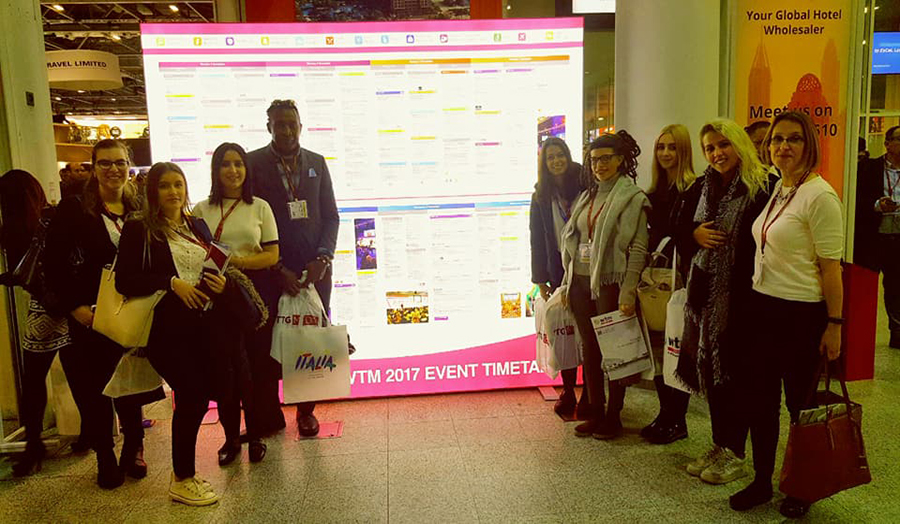



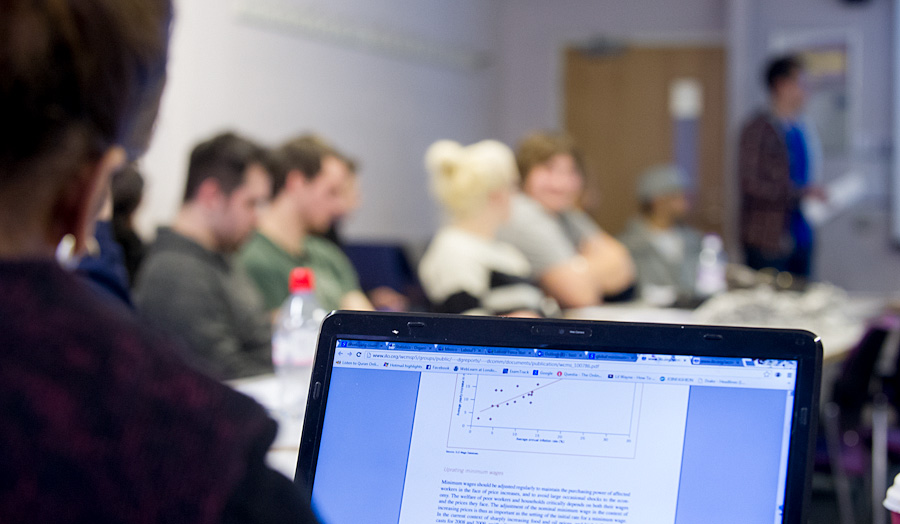
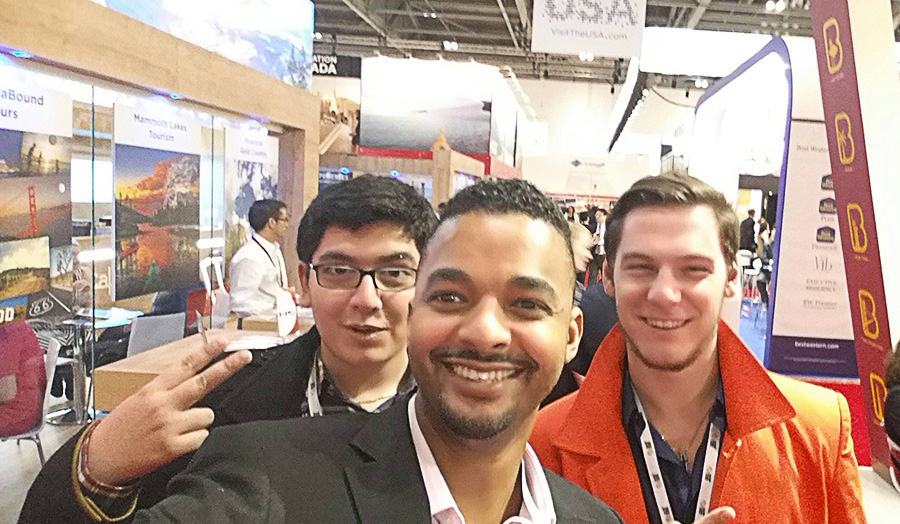


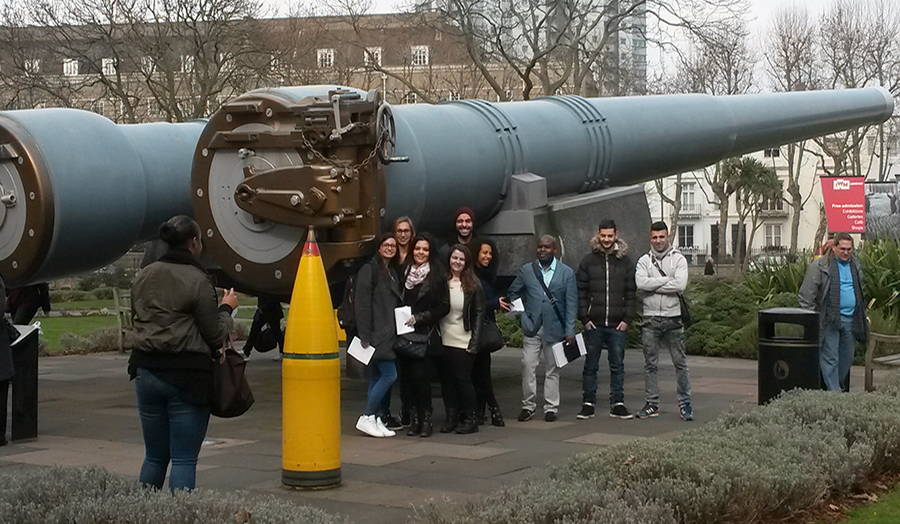
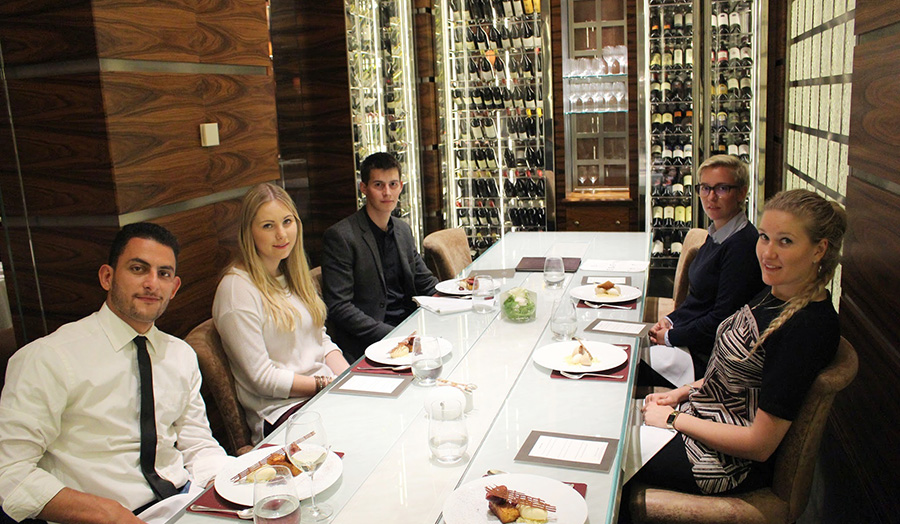
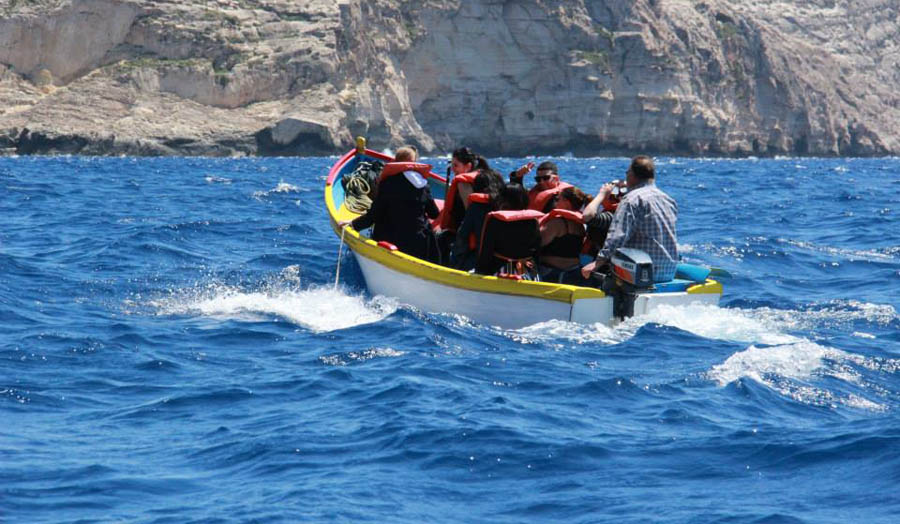

.jpg)





